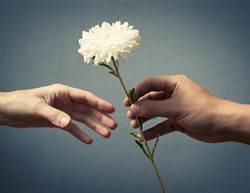Even if your life is full, there are many reasons you might feel lonely. Friendships shift, family dynamics can be complicated, and it may feel harder and harder to meet new people. So when the places you once made connections have changed but your desire to be social hasn’t, you can feel increasingly isolated, says social worker Hope Kelaher. You could find yourself wondering how to make friends as an adult, and you wouldn’t be alone in that question.
In fact, just over 1 in 6 (16%) Australians were experiencing loneliness in 2022, according to the Australian Institute of Health and Welfare.
Being social can do a lot for your overall health, says brain health researcher Marc Milstein. He says studies have found that socialising can strengthen the immune system, lower the risk of dementia and lessen memory loss. This is because social situations allow you to learn new things, which is essential in cognitive functioning and stress management. Additionally, friendships can reduce feelings of loneliness and social isolation, says Kelaher, which have both been known to take a toll on your long-term wellbeing.
If you’re ready to make your friendships a priority, here are some steps to take if you want to make new friends and stay connected to the ones you already have.
How to make friends as an adult
Think about yourself first
Start by making a list of what you’re interested in, what you’ve always wanted to do, and things you’d try in an ideal world, says family relationship expert Whitney Goodman.
Consider things you could learn, like an instrument or a new language, that might be avenues for connecting with people who share your interests while boosting your brainpower, Milstein adds. Then come up with themes like travel or creative expression that you can begin to explore with others who have similar interests.
Find an “anchor activity”
Focus on pinpointing a single new place to visit or class you can attend to serve as a central point as you take the next steps toward making friends. Try a religious centre, gym, community centre or volunteer opportunity that will allow you to pursue the passions on your list, Kelaher suggests. If you live in a remote area, she recommends signing up for a group trip or joining an online community through social media, online university classes, or sites Meetup.
Mark your calendar
Choose three days a week to deem “social days” on your calendar. Plan something physical, like a workout class, for the first day; schedule a brain-boosting activity, like an art class, next; and plan for a more social activity, like a book club, on the third day, Milstein suggests.
Once you’re in a social situation, Kelaher says, be vulnerable and engage with other people. Introduce yourself to someone as soon as you walk in. Ask if they’ve been there before and what brought them to the event, Goodman adds. And before you leave, create touchpoints to continue the conversation, like asking whether they’ll be at the next meeting.
Keep it up
“Friendship is like dating: It takes one person to take it to the next level and invite someone out,” Kelaher says. After attending events, challenge yourself to reach out to people you felt a connection with and schedule a phone call, walk or coffee date. Then as return invitations come flooding in, try to say yes to as many as possible, Kelaher adds. Finally, be sure to set reminders for birthdays and special occasions so you’ll always have an excuse to reach out to friends old and new.
Why are adult friendships so important?
Humans are social beings; there is a fundamental need for social interaction and to feel a sense of belonging, says psychologist Melissa Klosk. “Research shows that meaningful adult friendships can have a significant positive impact on one’s physical and mental health.” In fact, people who feel they have positive, supportive adult friendships also demonstrate higher physical and emotional wellbeing, she adds.
Being a part of a supportive social network can help with successfully managing depression, anxiety, loneliness and other life difficulties, Klosk continues. “Having meaningful adult friendships is correlated to experiencing more positive emotions and having a general sense of security which helps with overall life satisfaction,” she says.
From the extensive research that’s been done on loneliness and social isolation, it is widely known that lack of social connections has a significant impact on health outcomes, says therapist Tami Zak.
“Studies confirm that loneliness can be hazardous to your health, the equivalent to smoking 15 cigarettes a day.”
By contrast, not even having a long-term romantic relationship and strong family ties is important as having close friends to help people live longer, healthier, and more fulfilled lives, Zak explains.
Forming deep friendships is absolutely vital to not only longevity but also feeling a greater sense of purpose, life satisfaction, and well-being, says Zak. “One study that looked at numerous studies including 300,000 people all over the world revealed that people who have strong social connections are 50% less likely to die prematurely than people with weak social relationships,” she notes.
How can you maintain friendships as an adult?
It takes work to maintain friendships, says Zak. “You need to be intentional and make time for friends and, just like a marriage, you have to be committed to working through challenging periods.” If you are willing to invest time and energy in friendships, the results will be positively life-changing, says Zak.
One thing Klosk often speaks to clients about is maintaining “friend files,” which can be metaphorical or literal! “Take time to remember conversations you’ve had with your friends. Do they have a new hobby? Do they have a big interview coming up? Write it down or make a mental note of it. Reach out with an email, text, direct message, or phone call when something reminds you of the conversation you had,” Klosk suggests. These small gestures can go a long way in maintaining friendships and making your friend feel valued and heard.
Additionally, in this busy world, it can be important to schedule “friend time” for yourself, says Klosk. “Just like you would schedule a work meeting, create space in your calendar for socialising,” she suggests.
Another easy way to stay connected with your friends is to start and keep friend traditions, says Klosk. “Having a tradition with a friend is a great way to maintain a friendship. Perhaps you plan a yearly trip to a baseball game or always see each other for an annual girls weekend.”
Knowing you have these helps to keep you excited for the future social hang, not to mention that part of maintaining the friendship can be the conversations related to planning the activity, says Klosk.










